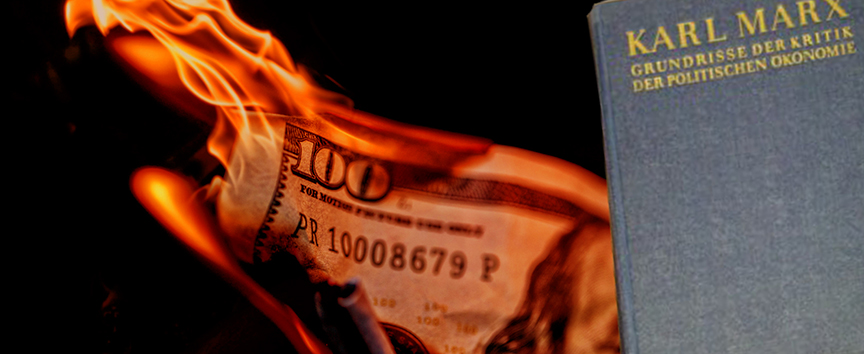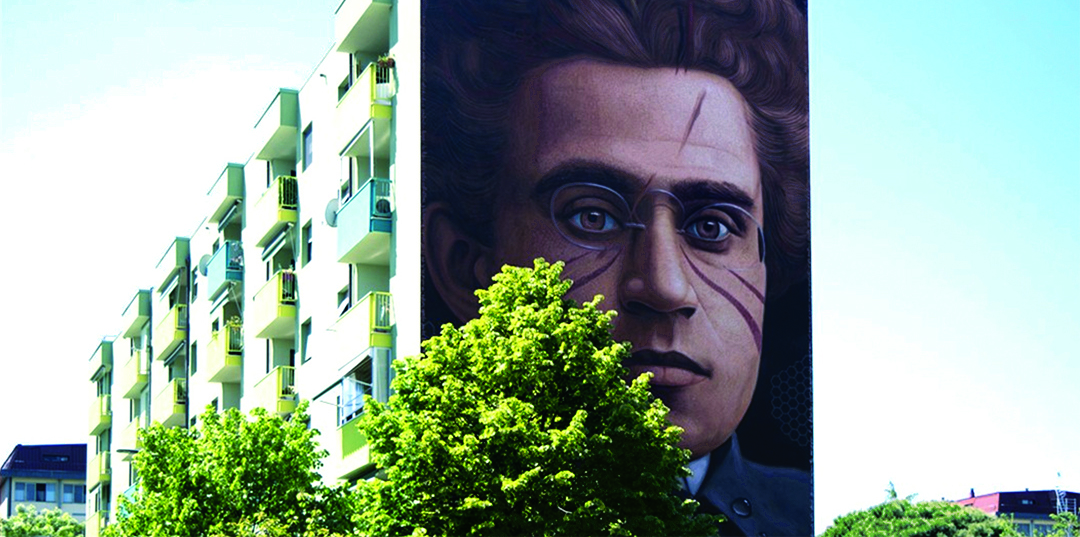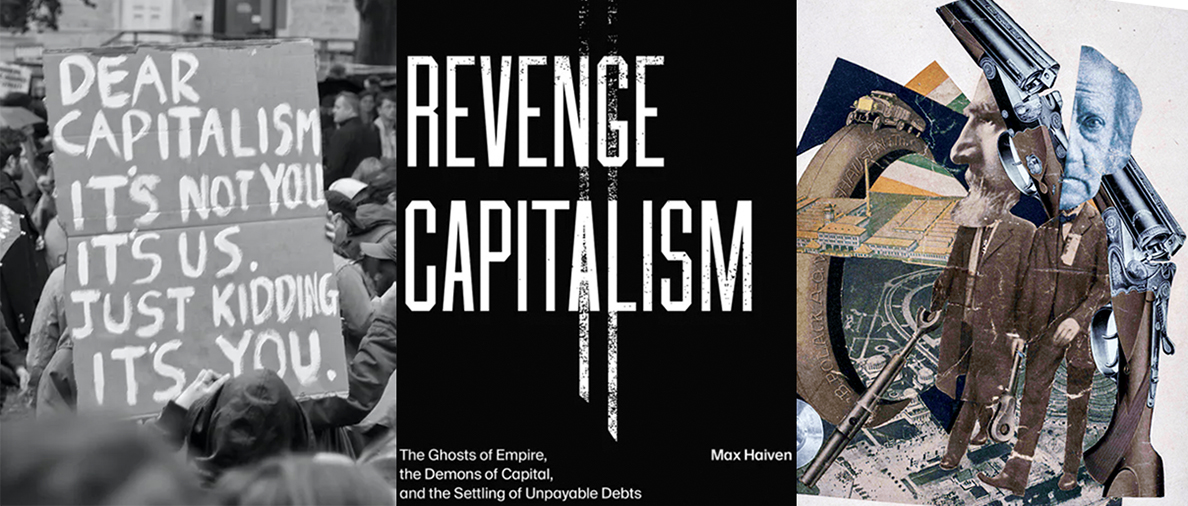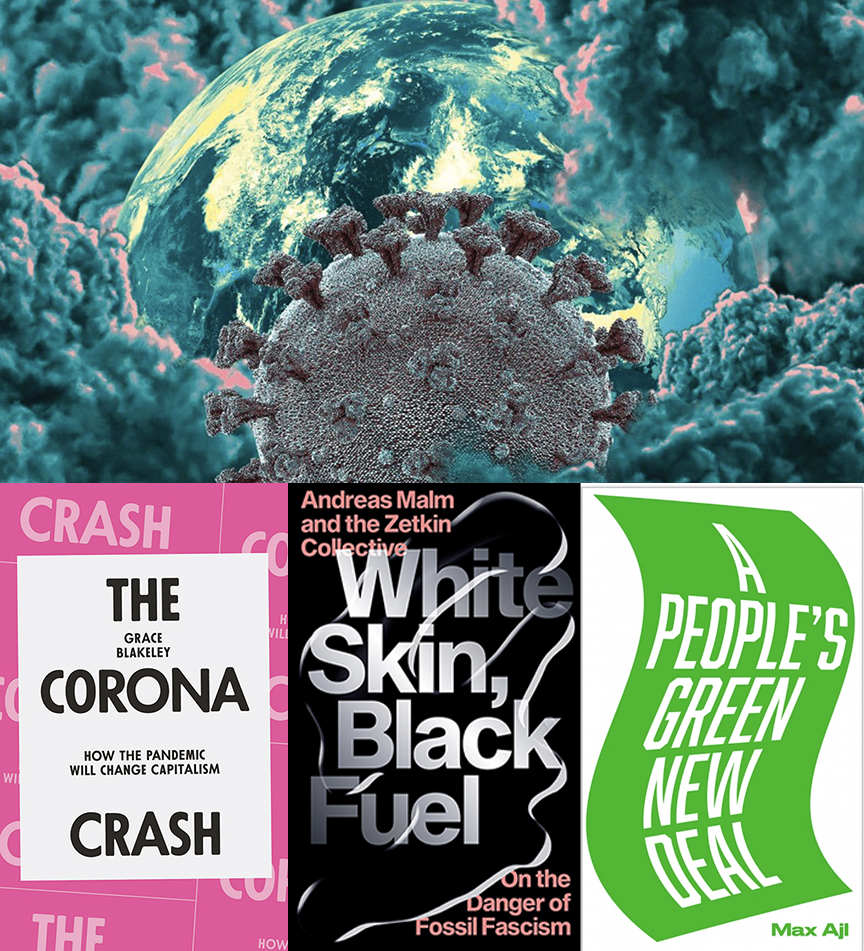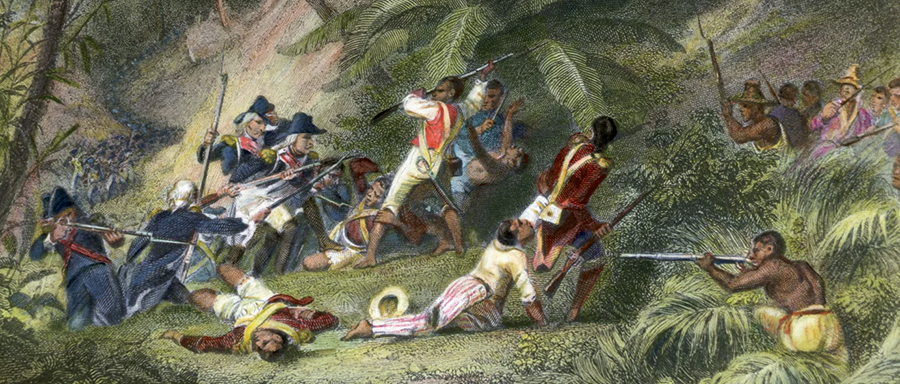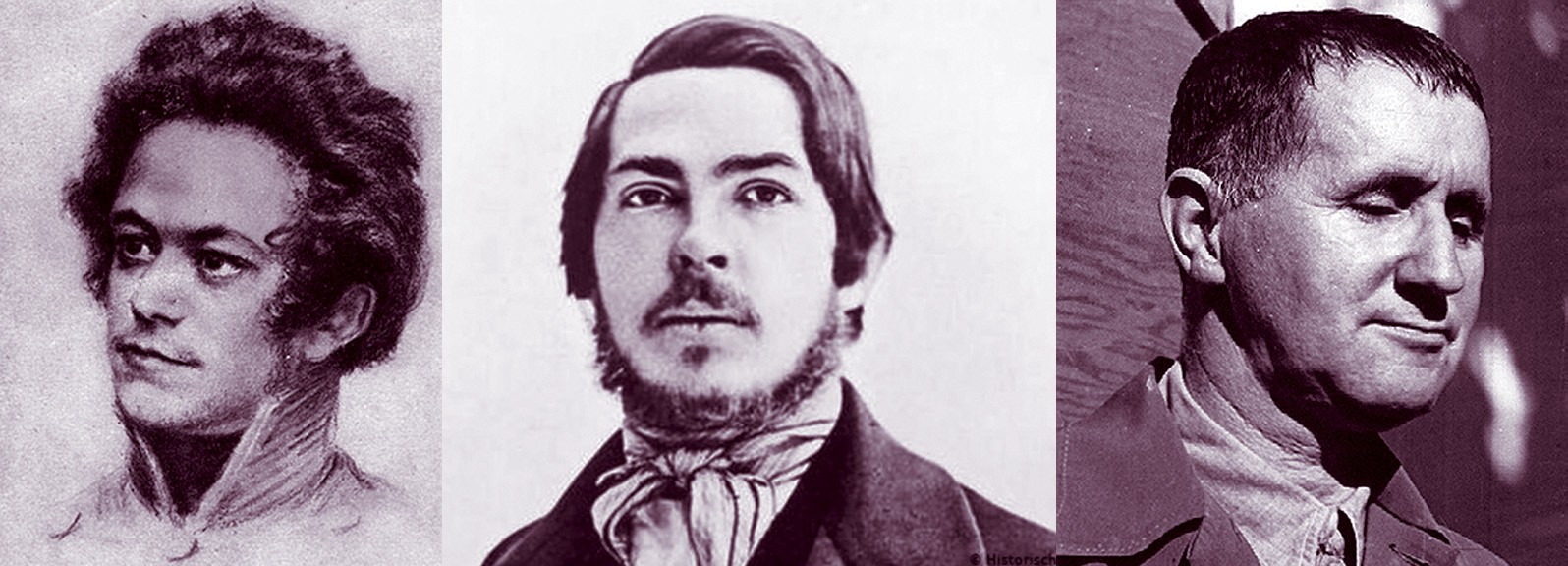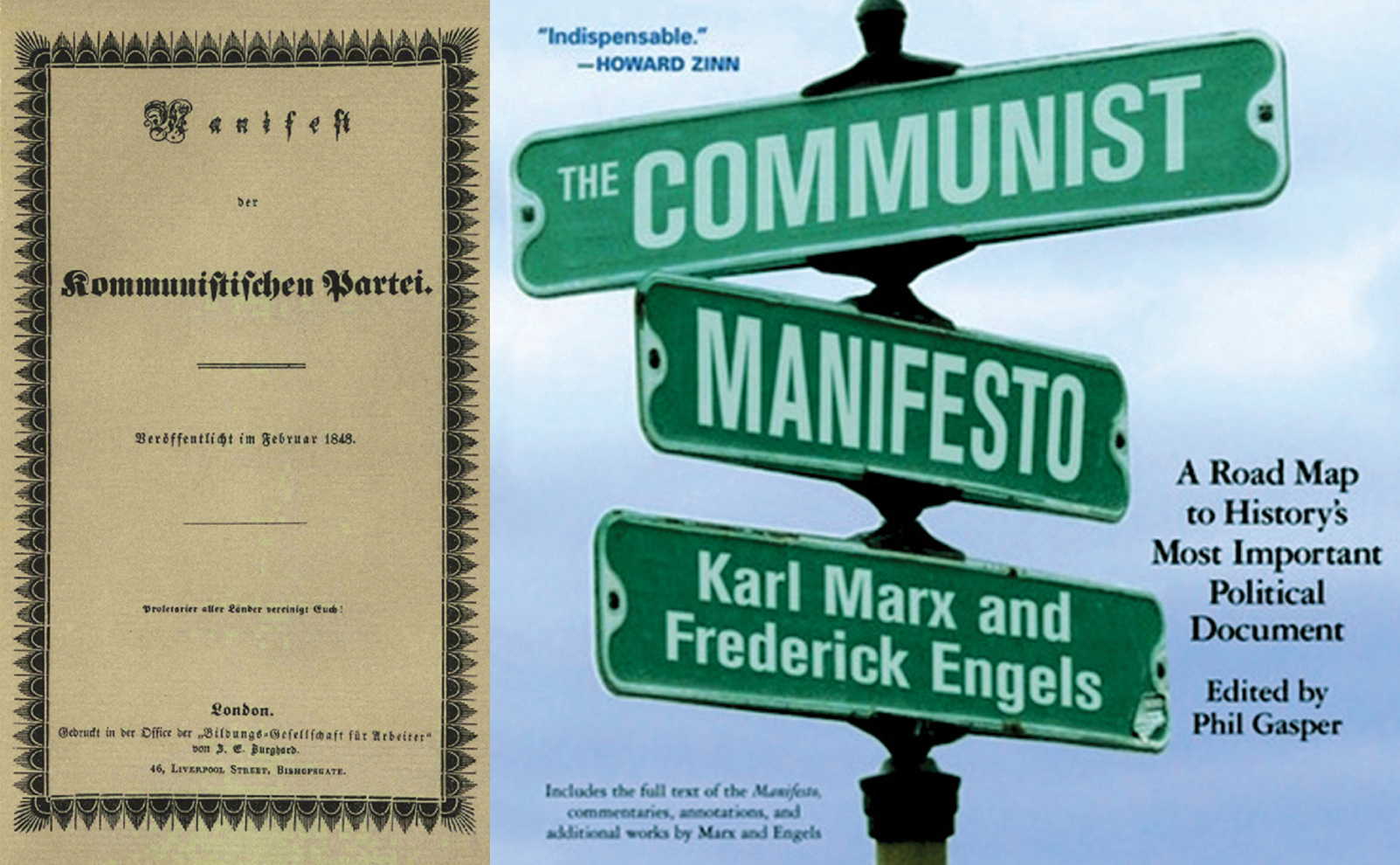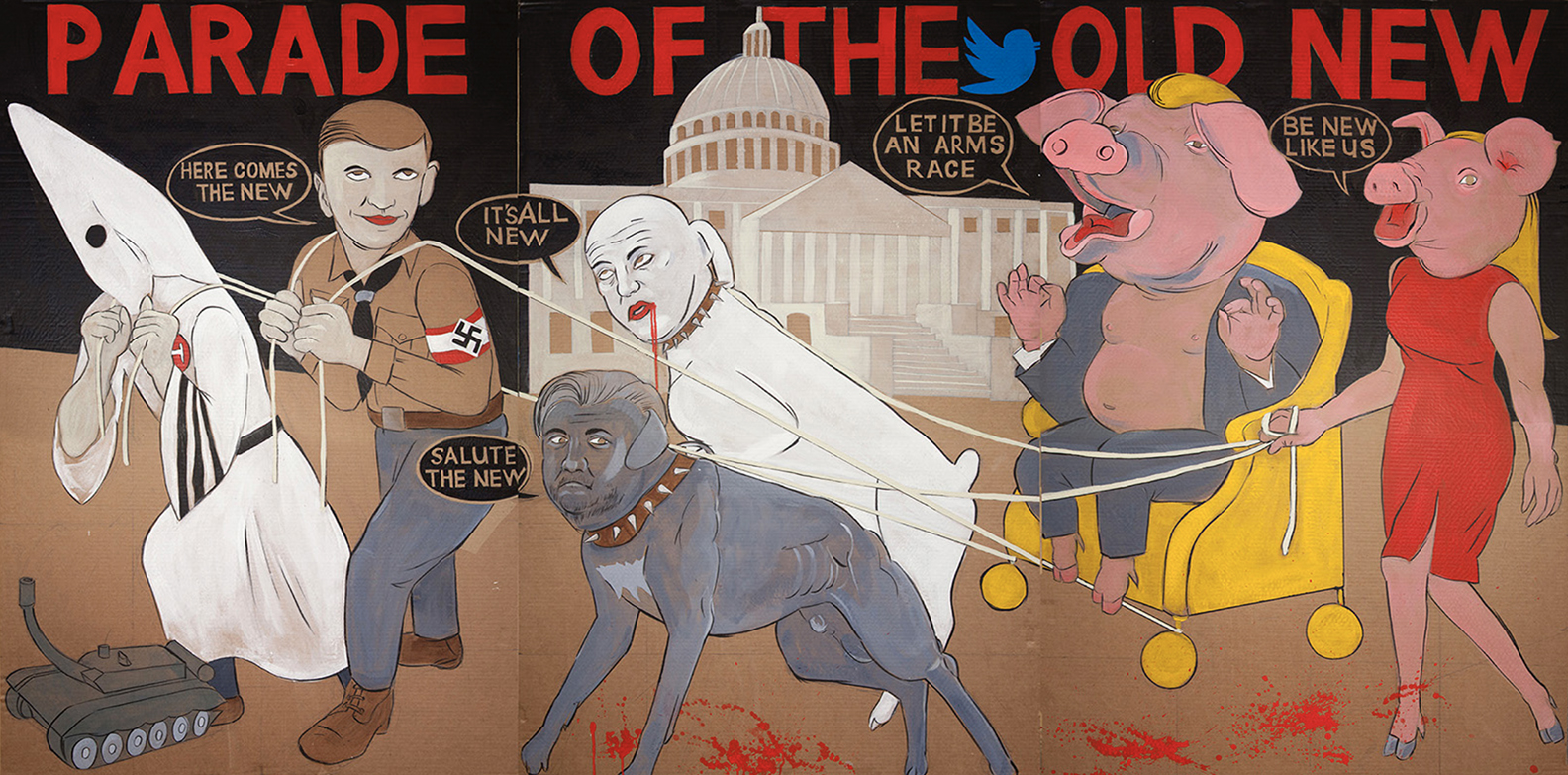Grundrisse: The Chapter on Money (The first two notebooks)
Online: Zoom link will be provided to registered participants“Forces of production and social relations - two different sides of the development of the social individual - appear to capital as mere means, and are merely means for it to produce on its limited foundation. In fact, however, they are the material conditions to blow this foundation sky-high...” —Karl Marx, The Grundrisse
Everyone a Legislator with author Michael Denning
Online: Zoom link will be provided to registered participants“Perhaps Gramsci’s political science is … a “necessary expression of his time, the short twentieth century, an era now ended, the ae of three words divided between Fordist capitalism, bureaucratic communism and the post-colonial settlements of decolonization. If this is true, is there a future for Gramsci’s legacy?” —Michael Denning
Revenge Capitalism with Max Haiven
Online: Zoom link will be provided to registered participantsIn Revenge Capitalism, Max Haiven argues that this economic vengeance helps us explain the culture and politics of revenge we see in society more broadly. Moving from the history of colonialism and its continuing effects today, he examines the opioid crisis in the US, the growth of 'surplus populations' worldwide and unpacks the central paradigm of unpayable debts - both as reparations owed, and as a methodology of oppression. Revenge Capitalism offers no easy answers, but Max has made a powerful call to the radical imagination: “When you live in someone else’s utopia, all you have is revenge. We live in capitalism’s utopia, a world almost completely reconfigured to suit the needs of accumulation. And the world’s alight, and ours is an age of vengeance. It is vengeance, sadly, that is usually directed at those who least deserve it and which leaves those whose actions led to the current state of affairs, or who benefit from it, free or even more empowered.” —Max Haiven, from his introduction to Revenge Capitalism
Ecosocialism in the Shadow of Covid
Online: Zoom link will be provided to registered participantsWe will read and discuss three books: The Corona Crash (Verso), by Grace Blakeley, details how the pandemic is ushering in a new era in which the corporate economy collapses into the arms of the state, and behemoths like Amazon and Netflix balloon in profit and power. White Skin, Black Fuel (Verso), by Andreas Malm and the Zetkin Collective, takes a comprehensive look at how extreme-right currents are responding to ecological crises with with authoritarian and xenophobic proposals while remaining ardent supporters of fossil capital – black fuels to support white supremacy. And A People’s Green New Deal (Pluto), by Max Ajl, engages critically with various Green New Deal proposals and sketches out a radical alternative committed to degrowth, anti-imperialism and agro-ecology.
The Invention of the White Race
Online: Zoom link will be provided to registered participantsTheodore W. Allen spent 30 years researching the primary sources and writing The Invention of the White Race (2 volumes), which provides a historical materialist analysis of racial oppression and the white identity which emerged as a principal form of social control over rebellious laboring class of European and Africans in the pattern setting colonies of Virginia and Maryland in the late 17th early 18th century.
The Essential Political Writings of Hubert Harrison
Online: Zoom link will be provided to registered participantsJeffrey B Perry describes Harrison “as the most class conscious of the race radicals and the most race conscious of the class radicals in those years” adding that he is “a key link in the two great trends of the Civil Rights/Black Liberation struggle—the labor and civil rights trend associated associated with A. Philip Randolph and Martin Luther King, Jr. and the race and nationalist trend associated with Marcus Garvey and Malcolm X.”
Brecht’s Communist Manifesto Today!
Online: Zoom link will be provided to registered participantsBrecht closes his Manifesto replying to Marx and Engels closing line in their Manifesto, “The proletarians have nothing to lose but their chains. They have a world to win,” by answering, “How may the workers break their own class chains? Only by breaking everybody’s chains.” Marx once said that there are historical moments when the working class must gain class-consciousness and become historical subjects. We are at just such a historical moment. Are we up to the task?
The Art of Diane Esmond
Online: Zoom link will be provided to registered participantsDiane Esmond (1910-1981) left an under-appreciated legacy of paintings. Although her artistic eye ranged over many subjects, her culminating evocations of the tropical forest have taken on added importance in the decades since her death. Based for most of her life in France, she displayed her work in Paris in the 1930s and internationally from the ‘50s through the ‘70s. Forced into exile in 1940, she spent the intervening years in New York; the paintings she left behind were seized (and many destroyed) by the Nazi occupation regime
The Invention of the White Race
Online: Zoom link will be provided to registered participantsTheodore W. Allen spent 30 years researching the primary sources and writing The Invention of the White Race (2 volumes), which provides a historical materialist analysis of racial oppression and the white identity which emerged as a principal form of social control over rebellious laboring class of European and Africans in the pattern setting colonies of Virginia and Maryland in the late 17th early 18th century.
The Essential Political Writings of Hubert Harrison
Online: Zoom link will be provided to registered participantsJeffrey B Perry describes Harrison “as the most class conscious of the race radicals and the most race conscious of the class radicals in those years” adding that he is “a key link in the two great trends of the Civil Rights/Black Liberation struggle—the labor and civil rights trend associated associated with A. Philip Randolph and Martin Luther King, Jr. and the race and nationalist trend associated with Marcus Garvey and Malcolm X.”
Women Write on the Verge of Historical Change: Last session
Online: Zoom link will be provided to registered participantsDuring this term, the MEP Literature Studies Group will read novels by women writers which explore the intersections of life in their communities, both at home and in the metropoles of Europe, India and the Philippines. These stories will take us to places and introduce us to people facing many of the dilemmas posed during late-stage capitalism, when the looming tipping points begin to collide. Reading and discussing these important writers could very well bring us to a broader sense of time and place. We will discussion Aminatta Forna and Gloria Apostol on December 2, 9, and 16.
A Guide to The Communist Manifesto with Phil Gasper
Online: Zoom link will be provided to registered participantsIF YOU CANNOT OURCHASE ON OUR SITE, TICKETS ARE AVAILABLE AT EVENTBRITE: https://www.eventbrite.com/e/203494927807
Since Phil produced this edition, the English-reading left has had an authoritative introduction to history’s most important political document, with the full text of The Communist Manifesto by Marx and Engels. This beautifully organized and presented edition of The Communist Manifestois fully annotated, with clear historical references and explication, additional related texts, and a glossary that will bring the text to life for students, as well as the general reader. Since it was first written in 1848, the Manifesto has been translated into more languages than any other modern text. It has been banned, censored, burned, and declared “dead.” But year after year, the text only grows more influential, remaining required reading in courses on philosophy, politics, economics, and history.
Parade of the Old New with artist/author Zoe Beloff
Online: Zoom link will be provided to registered participantsA discussion by Zoe Beloff about her new 40-panel accordion book that reproduces, Parade of the Old New, an epic panorama on cardboard panels, a 40 meter long allegory of the American body politic. The title is taken from a 1938 poem by Bertolt Brecht that inspired the theme of this work; now more than ever, we are not finished with the past and the past is not finished with us. The project was launched with Trump's inauguration and continued until he was defeated at the ballot box. It begins with the president's triumphal entry into Washington DC.Parade of the Old New is distributed by Booklyn, Inc. (booklyn.org). Booklyn also represents Beloff's work within the library and academic market.
The Invention of the White Race
Online: Zoom link will be provided to registered participantsTheodore W. Allen spent 30 years researching the primary sources and writing The Invention of the White Race (2 volumes), which provides a historical materialist analysis of racial oppression and the white identity which emerged as a principal form of social control over rebellious laboring class of European and Africans in the pattern setting colonies of Virginia and Maryland in the late 17th early 18th century.
Women Write on the Verge of Historical Change: Last session
Online: Zoom link will be provided to registered participantsDuring this term, the MEP Literature Studies Group will read novels by women writers which explore the intersections of life in their communities, both at home and in the metropoles of Europe, India and the Philippines. These stories will take us to places and introduce us to people facing many of the dilemmas posed during late-stage capitalism, when the looming tipping points begin to collide. Reading and discussing these important writers could very well bring us to a broader sense of time and place. We will discussion Aminatta Forna and Gloria Apostol on December 2, 9, and 16.

